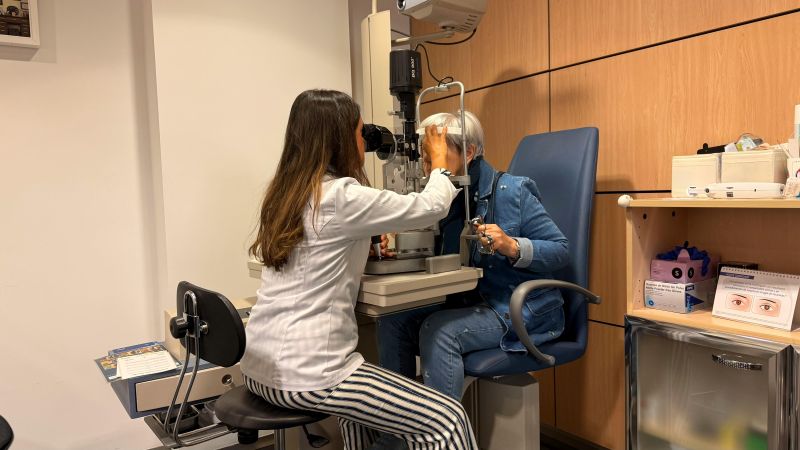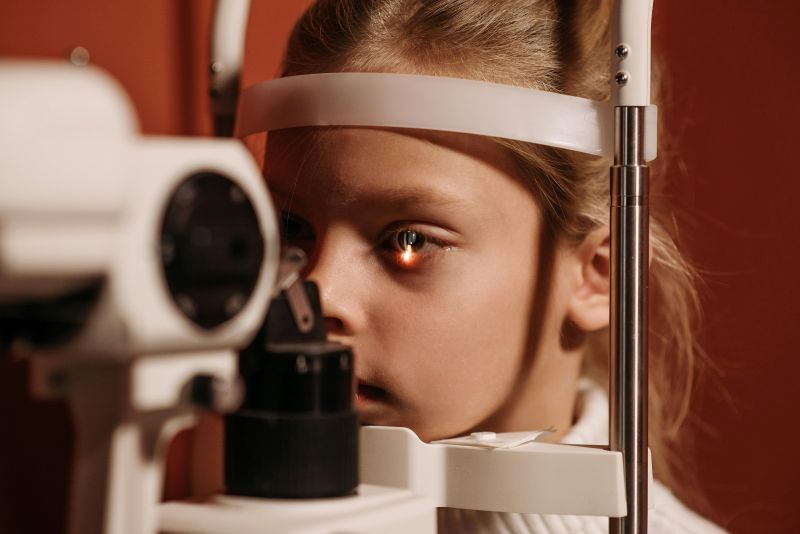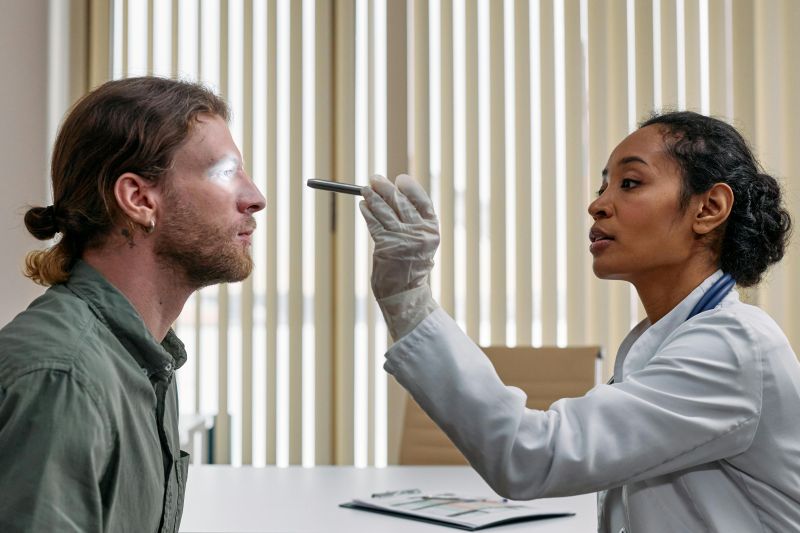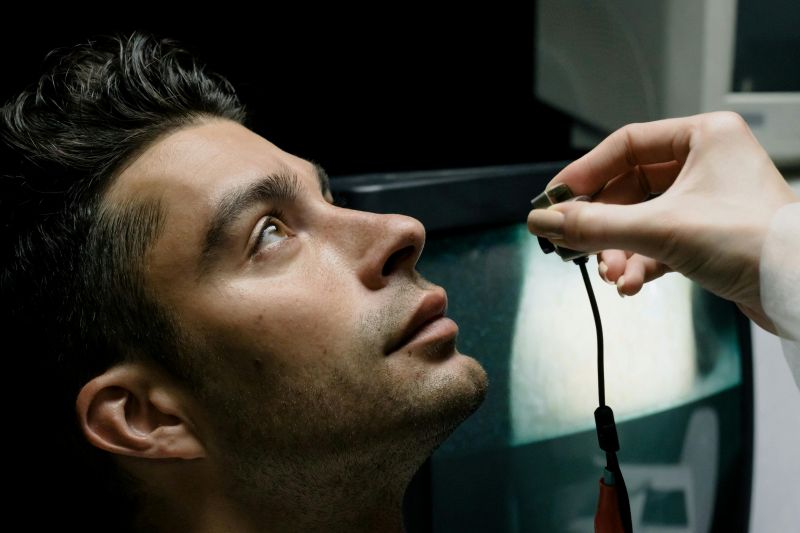Sitting at the optometrist’s office, Jenna clutched her phone. Her vision had gotten blurry at work, and she finally booked an appointment. Now, she was wondering the same thing many people ask: Does health insurance cover eye exams?
It’s not a silly question—health coverage can feel like a puzzle. Between deductibles, networks, and exclusions, it’s easy to get confused. Let’s break it down, like two friends talking over coffee.

How Standard Health Insurance Treats Eye Exams
Eye exams fall into a bit of a gray area when it comes to regular health insurance. For most adults, standard health plans don’t cover routine eye exams. These are the check-ups you get to update your glasses or contact lens prescription. If someone has medical insurance like Blue Cross, Aetna, or even Cigna, eye exams are usually not included unless it’s for a diagnosed medical condition.
Let’s say someone has diabetes or glaucoma. In that case, their health insurance might cover an eye exam because it’s part of monitoring a medical issue. This is where it can get tricky. Routine eye care is different from eye care related to a health condition.
So, Does Health Insurance Cover Eye Exams? If it’s about blurry vision and updating your glasses—probably not. If it’s about monitoring a disease—then maybe, yes.
Many people are surprised when they hear this. They think all kinds of check-ups are covered. But eye care often lives in a separate category. That’s why some folks choose a vision insurance plan in addition to their medical plan.
What Insurance Covers Eye Exams And Who Really Needs It?
Most employers don’t include vision care in their basic health insurance plans. That’s where vision insurance comes in. Plans from companies like VSP, EyeMed, or Humana often cost just a few dollars a month and can save a lot in the long run.
Let’s look at this through Olivia’s eyes—she wears glasses and gets a yearly exam. She pays around $15/month for her vision plan. Her eye exam costs only $10 with it, and her glasses are partially covered. Without it? The exam alone would cost over $100, plus full price for frames and lenses.
So, Does Health Insurance Cover Eye Exams visits? If your vision is changing or you wear glasses or contacts, it’s a good idea. Eye exams don’t just check vision—they can spot early signs of health problems like high blood pressure or diabetes, too.
Now, for kids, most state Medicaid plans do cover eye exams and glasses. And under the Affordable Care Act, pediatric vision care is considered essential. Adults, though, often have to look into separate plans or pay out-of-pocket.
Does Medical Cover Eye Exams For Adults?
Here’s where things get state-specific. Many people ask: Does medical cover eye exams for adults? The word medical here often refers to welliya.com in California or similar state programs like Medicaid in other places.
In California, Medi-Cal typically covers routine eye exams for adults every two years. That’s actually pretty generous compared to what other states offer. Some states only cover vision care if it’s connected to another medical issue.
So if someone in Fresno or San Diego is wondering Does Health Insurance Cover Eye Exams?—yes, it likely does. But if someone is in a different state, they’ll want to check their local Medicaid website or ask their provider.
It’s also worth noting that even if an exam is covered, glasses might not be. Sometimes, plans will only cover basic lenses or a small allowance for frames.

What About Medicare? Are Eye Exams Covered?
When people turn 65 and get on Medicare, the rules change again. A common question is: Are eye exams covered by Medicare insurance?
Original Medicare (Part A and B) does not pay for routine eye exams. If someone just wants to get their prescription updated, they’ll need to pay out-of-pocket. But if a doctor is checking for glaucoma, macular degeneration, or diabetic eye disease, that’s often covered.
There’s also Medicare Advantage (Part C), which is offered by private insurers. These plans often include vision care, but coverage varies. Some include yearly eye exams and a credit toward glasses or contacts.
So, seniors might want to explore Medicare Advantage if they want help covering eye exams and glasses.
Does Cigna Health Insurance Cover Eye Exams?
Cigna is one of the big names in health insurance. So, it’s fair to wonder: Does Cigna health insurance cover eye exams? The answer depends on the type of plan.
If it’s just a regular health plan, then no—routine eye exams are not included. But Cigna does offer vision insurance as an add-on. If someone has Cigna Vision, then they’re covered for one eye exam per year, and they usually get discounts on glasses and lenses.
If someone’s Cigna plan is through their employer, they should check if vision benefits are part of their package. Many companies bundle medical, dental, and vision—but not always.
Cigna’s website (or speaking with a plan representative) can clear up what’s included. It’s worth doing before making an appointment.
Insurance For Eye Exams And Glasses: Worth It?
Let’s talk about cost. A routine eye exam costs around $100 to $150 in most places. Glasses? Easily another $200 to $300, especially with special lenses or designer frames.
So, Does Health Insurance Cover Eye Exams can be worth it for many people. If someone wears glasses or contacts, vision insurance usually pays for itself. Even if they don’t need glasses now, a yearly exam is smart. Eyes can change slowly, and most people don’t even notice until they squint more often or get headaches.
Vision insurance helps take the sting out of those costs. And it encourages people to get regular check-ups instead of putting it off.
Eye Exam With Insurance Vs. Without: A Real-World Look
Let’s compare two people—Maya and Chris.
- Maya has vision insurance through work. She pays $15/month. Her annual eye exam costs $10, and her glasses are covered up to $150.
- Chris doesn’t have vision insurance. He pays $120 for his exam and $250 for new glasses. His total out-of-pocket? $370.
Maya pays about $180/year for her plan but saves on every visit. Chris, without insurance, ends up paying more in one visit than she does all year.
So if someone wears glasses, even part-time, the math usually works out in favor of having a plan.

FAQ’s
- Does health insurance cover eye exams for everyone?
No, most health plans don’t cover routine eye exams unless it’s related to a medical issue. For regular vision check-ups, people often need separate vision insurance. - Is the eye doctor covered by health insurance?
Only for medical problems like glaucoma, cataracts, or diabetes-related issues. Regular vision checks usually aren’t included in health insurance. - Does Cigna health insurance cover eye exams?
Standard Cigna plans don’t cover them, but Cigna Vision plans do. Always check the details of the specific plan. - Are eye exams covered by Medicare insurance?
Medicare Part A and B don’t cover routine eye exams. Medicare Advantage plans may offer vision benefits. - Do you need insurance for eye exams and glasses?
It helps a lot. Without it, costs add up quickly. With vision insurance, exams and glasses are much more affordable.
Final Thoughts
So, does health insurance cover eye exams? Sometimes—but usually not for routine vision checks. That’s why vision insurance exists. It fills the gap, especially for people who wear glasses or contacts.
People who want to save money long term should consider adding a vision plan. It makes those check-ups easier to afford, and helps catch eye problems early.
Vision is easy to take for granted—until it’s not clear anymore. A small step, like getting an eye exam, can make a big difference in how someone sees the world—literally.

